Tokyo Olympics 2021: See our best medal hopes and catch up on the new sports featuring in this year’s Games
Australia is on track for its biggest Olympic medal haul in over a decade. Which sports will bring us gold in Tokyo? See who our best chances are.
Olympics
Don't miss out on the headlines from Olympics. Followed categories will be added to My News.
The Australian Olympic Committee quit making medal predictions long ago because of fears it was jinxing the team but that hasn’t stopped everyone else from gazing at the crystal ball.
And if the global data experts are right, Australia is on track for its biggest Olympic medal haul in over a decade – with the number crunchers expecting an increase in excess of 50 per cent – before COVID-19 came along.
The latest forecasts are that Australia could do even better than initially forecast because we’ve weathered the pandemic better than most countries, though no-one can say for sure how big an advantage that will be because most international sporting events have been frozen for the past year.
Even before Covid, the number of predicted medals was impressive enough, with Australia tipped to win a swag of 44 – including 12 gold – and finish sixth overall, with the United States once again projected to come out on top.
Kayo is your ticket to the best sport streaming Live & On-Demand. New to Kayo? Try 14-Days Free Now >
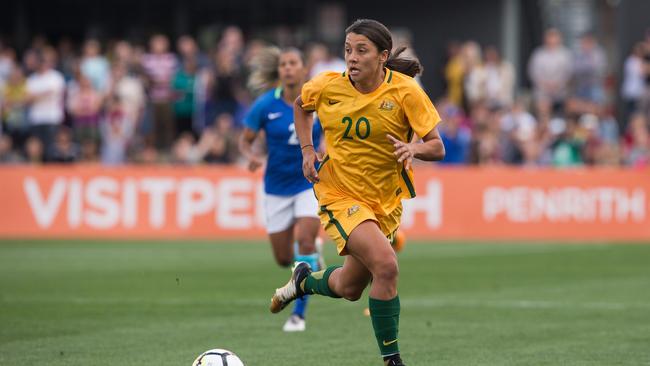
That would be a welcome return to the glory days after Australia’s Olympic medal totals started to decline in the last decade. After the record 58 won at Sydney in 2000, the team won 50 at Athens (2004), 46 at Beijing (2008), 35 at London (2021) and just 29 at Rio de Janeiro (2016).
Australia’s star swimmers are forecast to win about a third of all the medals in Tokyo while the rest will be spread across more than a dozen sports including cycling, rowing, sailing, track and field, canoeing, hockey, basketball, football, diving, shooting, Rugby Sevens, surfing, triathlon, BMX and skateboarding.
Here are where our best chances are:
SWIMMING
With proven champions including Mack Horton, Kyle Chalmers, Cate and Bronte Campbell, Emma McKeon and Mitch Larkin and a new wave of stars such as Ariarne Titmus, Kaylee McKeown, Minna Atherton, Matt Wilson and Elijah Winnington, this could be the Dolphins’ best squad in years, after they set the benchmark by winning 19 medals at the last world championships.
ATHLETICS
Javelin thrower Kelsey-Lee Barber is the reigning world champion but not the only Aussie in medal contention with a new generation of rising stars surging up the rankings. Look out for Rohan Browning. He may not make it on the medal podium this time but he’s Australia’s first male 100m entrant since 2004.
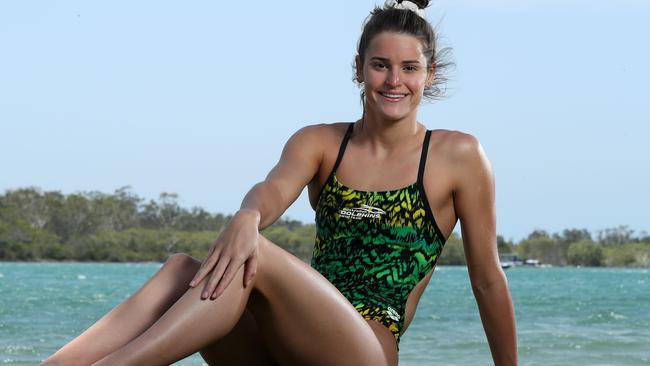
CYCLING
Australia has strength and depth across all disciplines; road, track, mountain biking and BMX, where Logan Martin and Brandon Loupos have won the last two freestyle world championships.
CANOEING
Another strong sport for Australia, led by multiple world champion and two-time Olympic medallist Jess Fox.
BASKETBALL
The ultra reliable Opals have won three silver and two bronze medals from the last six Olympics but the men’s team are still searching for an elusive medal. Is Tokyo the time the Boomers break their hoodoo?
FOOTBALL
Australia has never won a medal in football at the Olympics but don’t count out a Matildas team led by global superstar Sam Kerr.
TENNIS
Australia has won five medals in tennis since it was reintroduced to the Olympics in 1996 and with Ash Barty ranked No. 1 in the world, another medal in Tokyo would not be a shock.
SURFING
One of the new sports at the Olympics and one of Australia’s big hopes with Stephanie Gilmore, Sally Fitzgibbons, Julian Wilson and Owen Wright all qualified.
RUGBY 7S
Australia’s champion women’s team are defending the gold medal they won in Rio while the men are currently ranked fourth in the world.
BOXING
Australia’s last Olympic medal in boxing was in 1988 but with heavyweight Justis Huni and some of his teammates are rated strong contenders and this time the drought could be broken.
HOCKEY
Rarely does an Olympics pass by when either the Kookaburras or the Hockeyroos don’t medal. The women’s program has had some highly publicised cultural issues that are being cleaned up but don’t rule out a double medal celebration for the green and gold.
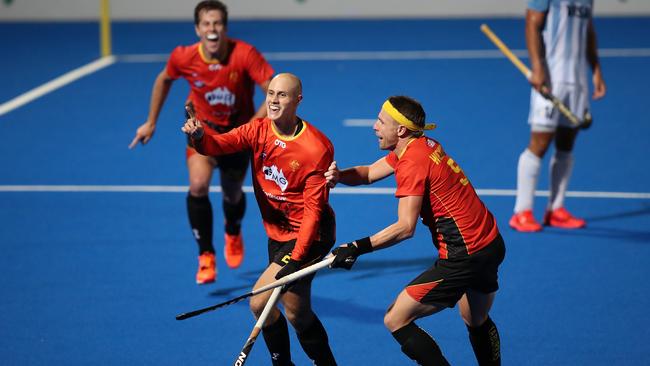
SOFTBALL
Back on the Olympic program for the first time since 2008, Australia has won a medal in softball every time it has been played, but the gold has eluded the Spirit. Perhaps 2020 will change that.
GOLF
One of the hardest sports to predict but Australia will have no shortage of contenders no matter who takes to the tee, including Hannah Green, the last Aussie – male or female – to win a major.
SAILING
One of Australia’s traditional strengths, with multiple medallists common at each Games and Tokyo expected to be no different.
ROWING
With four men’s crews and four women’s crews already qualified for Tokyo, this is shaping as a vintage Games for our impressive rowers.
SHOOTING
Another sport where Australia always wins medals. The addition of mixed events only adds to the prospects of a good haul.
WATER POLO
The Stingers have won medals at four of the five Olympics where women’s water polo has been played, including gold at Sydney (2000). The Sharks are chasing their first medal in the men’s event but are among the chances this time.
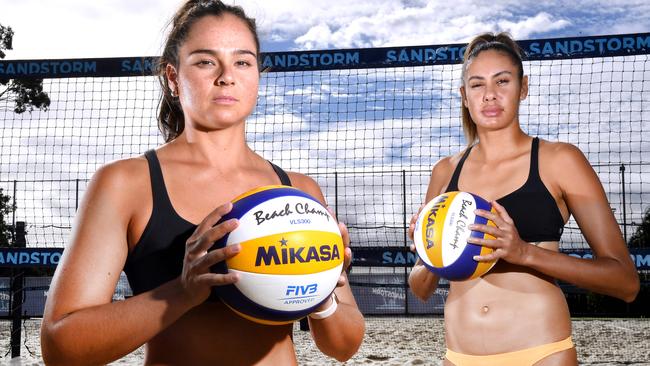
BEACH VOLLEYBALL
Taliqua Clancy and Mariafe Artacho del Solar are considered among the best in the world in the women’s competition with high hopes for a podium finish.
ARCHERY
Australia won bronze in the men’s team event at Rio in 2016 and are in the hunt again.
EQUESTRIAN
One of Australia’s most consistent medal winning sports, with four golds since 1960, with qualifiers for Tokyo in the individual and team eventing, dressage and jumping competitions.
TRIATHLON
Strong chance of a medal, especially in the mixed event.
DIVING
Australia has medal hopes in the synchronised and individual springboard events.
NEW SPORTS AT THE 2021 TOKYO OLYMPICS
Scott Gullan
SURFING
Makes its debut at Shidshita Beach on Japan’s Pacific Coast with 20 men and 20 women competing in separate competitions.
The competition will use shortboards and a four-man heat structure - four athletes will compete at a time. The best two of each heat continue to the next round.
There will be a panel of judges to determine performance. Scores are based on difficulty of manoeuvres and how they are executed, taking into account speed, power and flow.
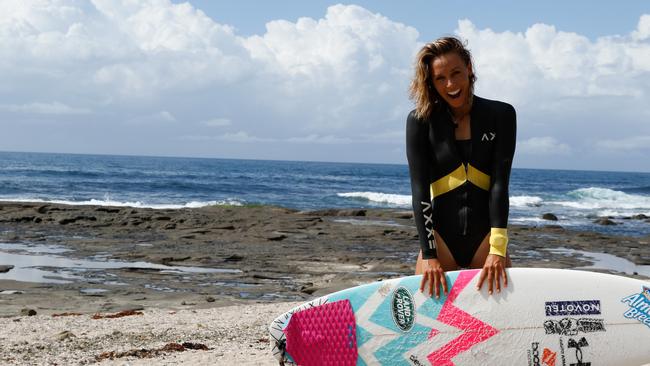
SKATEBOARDING
There will be two Olympic disciplines: Park and Street.
Park takes place in a hollowed-out bowl which features a series of curved surfaces that rise steeply. Competitors climb the curves at speed and perform mid-air tricks.
The Street event involves competitors showing off their skills or “tricks” on a course which includes stairs, handrails, curbs, benches, walls and slopes.
They are scored on the level of difficulty, height, speed, originality, execution and move composition.
SPORT CLIMBING
Climbing athletes will traverse an artificial wall dotted with holds of different shapes and sizes.
The combined format will feature three disciplines: speed climbing, bouldering and lead climbing.
Speed climbing involves two climbers racing up a fixed route on a 15m wall. A false start means instant disqualification.
Bouldering involves climbers scaling a number of fixed routes on a 4m wall within a given time, without ropes, over safety matting. The routes are called ‘problems’ and the athlete that ‘solves’ the most in the lowest number of attempts wins.
In qualifications and semi-finals, the climbers observe the problems for the first time during their first attempt, they are kept in an isolation room beforehand.
But in the finals they can preview the problem during a group observation time of two minutes per boulder. Different problems are set for men and women.
Lead climbing sees the competitors attempt to climb as high as possible on an overhanging 15m wall within a six-minute time limit. They are secured by a rope and the athlete who climbs to the highest point wins.’
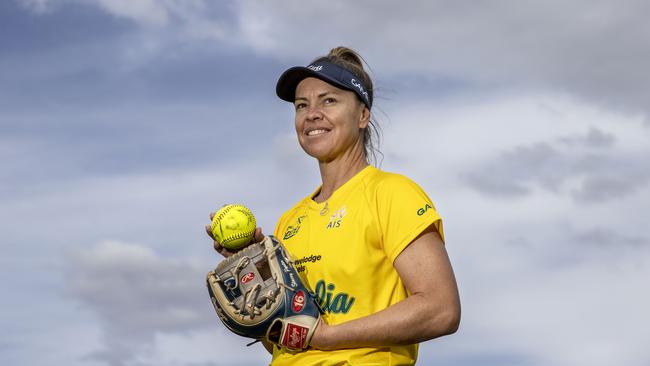
BASEBALL AND SOFTBALL
Being reintroduced after their last appearance at the 2008 Beijing Games.
Their reinstatement follows an invitation by the IOC for the host country to propose the temporary inclusion of additional events. They suggested women’s softball and men’s baseball considering their popularity in Japan.
KARATE
Will consist of two forms of karate: kata (a solo form) and kumite (sparring).
Kata is a demonstration of a series of offensive and defensive movements made to be practised alone targeting a virtual opponent.
In kumite competitors are allowed to use three techniques: striking, kicking and punching. They have to try and land strikes on the target area of their opponent‘s body to gain points.
There will be three weight classes each for men‘s and women’s kumite events.
BASKETBALL - 3 ON 3
Inspired by streetball played around the world the rules are designed to make it fast, spectacular and exciting.
The 12-second shot-clock makes 3x3 the quickest team competition in the world. Games can be won in two different ways: by scoring the most points after 10 minutes or if a team reaches 21 points.
There will be eight men’s teams and eight women’s teams in Tokyo.
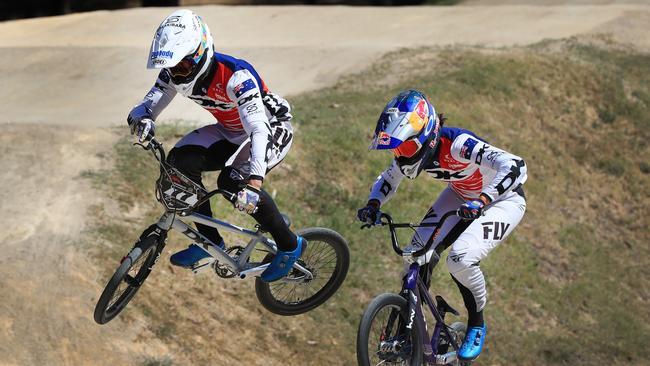
BMX FREESTYLE
Competitors will compete in the park discipline which sees riders execute tricks on obstacles such as walls, box jumps and spines. They will be given two 60-second runs to perform acrobatics tricks and skills, with tricks scored on multiple aspects including difficulty, originality, execution, height and creativity.
There will be just nine men and nine women riders, with the host nation Japan taking one of those spots.
MIXED RELAYS
Several sports will be dipping into mixed relay events in Tokyo.
In swimming there will be a 4x100-meter mixed medley relay featuring two men and two women on each team while in track and field there will be a 4x400m mixed relay which each team able to decide the order of runners.
Triathlon is adding a mixed team relay with two men and women per team, each completing a scaled-down Olympic course.
Archery also adds a mixed-team event in which teams of one man and one woman face each other in match play.





